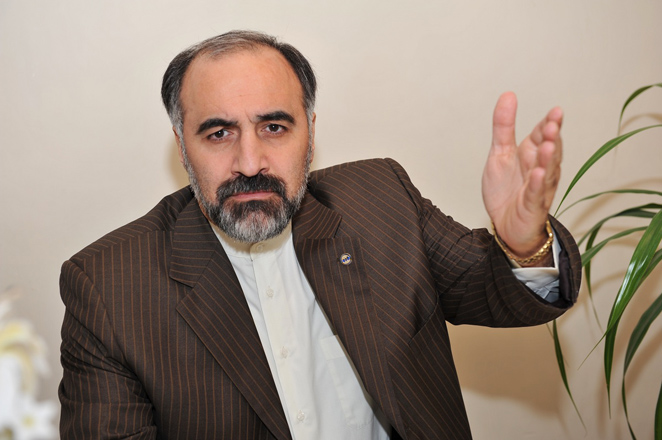Tehran, Iran, Dec. 1
By Milad Fashtami - Trend:
Iran's budget deficit in the current Iranian calendar year (to end March 20, 2015) may even amount to 50 percent.
Head of Iran World Trade Center Mohammad Reza Sabzalipour told Trend on December 1 that the minimum budget deficit will be around 30 percent, but in the worst case scenario the figure may even reach 50 percent.
"The falling trend of oil price in global markets is expected to continue at least until the first quarter of 2015," he said, adding that the prices may drop to $60 per barrel in the coming weeks.
The OPEC oil basket price has fallen from $108 in June to about $70,8 on Nov.30. Iran's current fiscal year's budget was set based on $100/barrel and exporting 1.3 million barrels of crude oil per day. Iran's fiscal year will end on March 20,2015. This is while, according to the Reuters' report, published on Nov.29, Iran's oil export to Asian markets during the first 10 months of 2014 is 1.1 million barrels per day. Iran also exports a little bit of oil to Turkey, but reportedly only about 0.1 mbpd.
Sabzalipour said that the current year's budget plan was practically approved with deficit.
"Iran is currently exporting less oil than the figure projected in the budget plan. The price of the exported oil is also way below the figure estimated in the budget plan. It is while the country had to pay off some debts from the previous fiscal year's budget plan. So a considerable budget deficit is completely understandable," he said.
He went on to note that budget deficit in the next year would also be inevitable.
"The government will not be able to pay for all its spending in the current year, so some of the debts will be transferred to next year's budget plan. Given the fact that oil prices are falling and Iran's oil revenues are decreasing, budget deficit in the next year will also be unavoidable," Sabzalipour noted.
"Iran can't even receive most of its oil revenues due to the sanctions imposed on the banking system," he stated.
The U.S. estimated that Iran's blocked assets abroad are about $100 billion.
Iran and P5+1, including the U.S., UK, France, Russia, China plus German reached an interim nuclear accord in November 2013, which has been extended to July 1, 2015.
During a year to November 23, 2014, Iran received $7 billion blocked assets from abroad based on nuclear accord and plans are for $4.8 billion more of Iran's blocked assets to be released. However, based on current sanctions, Iran yet is not able to transfer its exported oil revenues from abroad and only can purchase commodities from its oil customers and imports them.
After failing to reach an apprehensive nuclear deal on November 24, 2014, Iran and P5+1 agreed to expand the negotiations by seven months.
"Iran and the P5+1 group of countries extended their nuclear talks, so the sanction won't be lifted at least until the second half of 2015. Even if the sanctions are lifted then, it will take several months and even years to become effective, so the embargo will still have a negative impact on the Iranian government's revenues in the next year," he explained.
Sabzalipour further said that OPEC's decision to keep the oil production level of the organization was political rather than economic.
"Some of the members insisted on the decision to put Iran under pressure," he said.
"Iran needs to resolve its political differences with neighboring countries to avoid such retaliation measures," Sabzalipour noted.
OPEC held a meeting on Nov.27, but the members agreed to keep the current 30 mbpd of oil production ceiling level unchanged.






